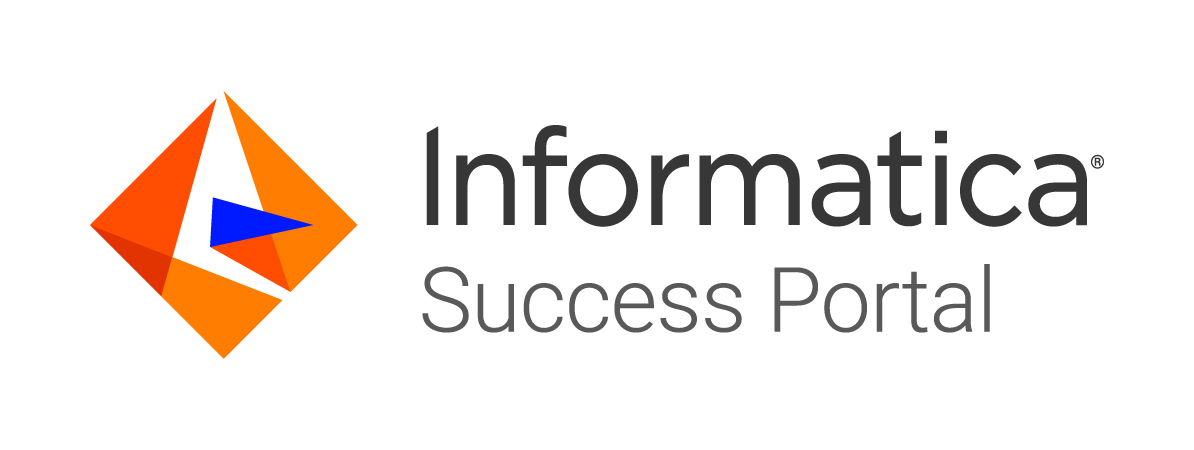-
Success
Manage your Success Plans and Engagements, gain key insights into your implementation journey, and collaborate with your CSMsSuccessAccelerate your Purchase to Value engaging with Informatica Architects for Customer SuccessAll your Engagements at one place
-
Communities
A collaborative platform to connect and grow with like-minded Informaticans across the globeCommunitiesConnect and collaborate with Informatica experts and championsHave a question? Start a Discussion and get immediate answers you are looking forCustomer-organized groups that meet online and in-person. Join today to network, share ideas, and get tips on how to get the most out of Informatica
-
Knowledge Center
Troubleshooting documents, product guides, how to videos, best practices, and moreKnowledge CenterOne-stop self-service portal for solutions, FAQs, Whitepapers, How Tos, Videos, and moreVideo channel for step-by-step instructions to use our products, best practices, troubleshooting tips, and much moreInformation library of the latest product documentsBest practices and use cases from the Implementation team
-
Learn
Rich resources to help you leverage full capabilities of our productsLearnRole-based training programs for the best ROIGet certified on Informatica products. Free, Foundation, or ProfessionalFree and unlimited modules based on your expertise level and journeySelf-guided, intuitive experience platform for outcome-focused product capabilities and use cases
-
Resources
Library of content to help you leverage the best of Informatica productsResourcesMost popular webinars on product architecture, best practices, and moreProduct Availability Matrix statements of Informatica productsMonthly support newsletterInformatica Support Guide and Statements, Quick Start Guides, and Cloud Product Description ScheduleEnd of Life statements of Informatica products
- Velocity
- Strategy
-
Solutions
-
Stages
Following a rigorous methodology is key to delivering customer satisfaction and expanding analytics use cases across the business.

-
More
-
Success
Manage your Success Plans and Engagements, gain key insights into your implementation journey, and collaborate with your CSMsAccelerate your Purchase to Value engaging with Informatica Architects for Customer SuccessAll your Engagements at one place
-
Communities
A collaborative platform to connect and grow with like-minded Informaticans across the globeConnect and collaborate with Informatica experts and championsHave a question? Start a Discussion and get immediate answers you are looking forCustomer-organized groups that meet online and in-person. Join today to network, share ideas, and get tips on how to get the most out of Informatica
-
Knowledge Center
Troubleshooting documents, product guides, how to videos, best practices, and moreOne-stop self-service portal for solutions, FAQs, Whitepapers, How Tos, Videos, and moreVideo channel for step-by-step instructions to use our products, best practices, troubleshooting tips, and much moreInformation library of the latest product documentsBest practices and use cases from the Implementation team
-
Learn
Rich resources to help you leverage full capabilities of our productsRole-based training programs for the best ROIGet certified on Informatica products. Free, Foundation, or ProfessionalFree and unlimited modules based on your expertise level and journeySelf-guided, intuitive experience platform for outcome-focused product capabilities and use cases
-
Resources
Library of content to help you leverage the best of Informatica productsMost popular webinars on product architecture, best practices, and moreProduct Availability Matrix statements of Informatica productsMonthly support newsletterInformatica Support Guide and Statements, Quick Start Guides, and Cloud Product Description ScheduleEnd of Life statements of Informatica products
-
Success
Quality Assurance Manager
Cloud Data Warehouse & Data Lake
The Quality Assurance (QA) Manager ensures that the original intent of the business case is achieved in the actual implementation of the solution. This can involve leading a variety of efforts including:
- Validating the integrity of the data integration and overall data management solution processes
- Ensuring the ultimate data target has been accurately derived from the source data
- Ensuring solution performance meets end user requirements or service level agreements (SLA)
The QA Manager can be a member of the IT organization but serve as a liaison to the business community. In situations where issues arise with regard to the quality of the solution, the QA Manager works with project or program management and the development team to resolve them. Depending upon the test approach taken by the project team, the QA Manager may also serve as the Test Manager. One person may be responsible for more than one role.
Responsibilities
- Leads the effort to validate the integrity of the data throughout the data integration processes and utilizes metadata management and data validation tools to increase the depth and breadth of validation efforts.
- Ensures that the data contained in the data integration solution has been accurately derived from the source data.
- Ensures delivered components meet SLA requirements.
- Develops and maintains quality assurance plans and test requirements documentation.
- Verifies compliance to commitments contained in quality plans.
- Works with the project management and development teams to resolve issues.
- Participates in the enforcement of data quality standards.
- Communicates concerns, issues, and problems with data.
- Participates in testing and post-production verification.
- Advises on the development methods to ensure that quality is built into the deliverables.
- Designs the QA and standards enforcement strategy.
- Together with the Test Manager, coordinates the QA and Test strategies.
- Manages the implementation of the QA strategy.
Qualifications/Certifications
- Industry vertical knowledge
- Solid understanding of the Software Development Life Cycle
- Experience in quality assurance performance, auditing processes, best practices, and procedures
- Experience with automated testing tools and the Informatica Platform
- Knowledge of technical solutions and the related business cases
- Able to work effectively with both business and technical stakeholders
